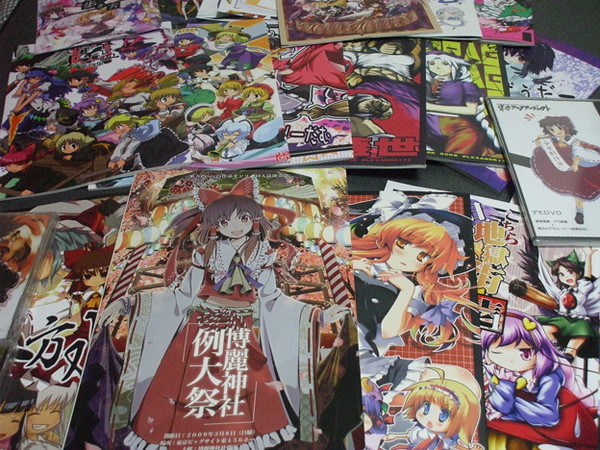Interest
Fan Work Unlikely to Be Prosecuted Without Rights Holders' Consent
posted on by Eric Stimson
The Trans-Pacific Partnership, a free-trade agreement covering 12 nations in East Asia, Oceania and the Americas (including Japan and the United States), was concluded on October 5, but several issues remain to be ironed out. Among these are copyright laws, which vary from country to country. In Japan, copyright infringement is considered a shinkokuzai, or a crime that can only be prosecuted with the victim's consent, but there have been concerns that the TPP may change this. It requires that unlawful duplication of copyrighted work on a commercial scale be prosecuted even without the victim's consent, although "situations that do not have a major impact on the original work's profits" would be exempted. It has been unclear whether dōjinshi falls into this category, but the possible unintended consequences of banning dōjinshi have been serious enough to cause alarm in Japan.

Therefore, the Ministry of Education, Culture, Sports, Science and Technology held a subcommittee meeting on copyright law on November 4 to discuss the issue, and in particular whether fan work such as dōjinshi would be affected by the new agreement. The committee was comprised of academics and chaired by Kazufumi Dohi, a professor at Nihon University's graduate school.
JASRAC (the Japanese Society for Rights of Authors, Composers and Publishers) asked for clarification on what would qualify as a "commercial scale" and which situations would "not have a major impact on the original work's profits." It suggested that victims be adequately consulted on whether violators should be punished. The Motion Picture Producers Association of Japan stressed that it was mostly concerned with bootleg movies and other "malicious activities."
The Comiket planning committee warned about the possible consequences of cracking down on dōjinshi, claiming that it would have a baleful effect on Japan's creative ecosystem and that reclassifying fan works as not shinkokuzai would only bring "atrophy" to the original rights holders. thinkTPPIP, a forum on the TPP's intellectual property regulations, asked that the change in status be limited to "duplicates of the original work, produced on a commercial scale, that would have major effects on the original work's profits." Ken Akamatsu, a manga artist who has been outspoken in defense of fan works, asked that investigators consult with rights holders whether they wanted prosecution of copyright violators and pleaded for the treaty to make this explicit.
At the conclusion of the meeting, Professor Dohi said he would like to "move in the direction of not including fan works [as non-shinkokuzai]." Other committee members did not dissent. One was skeptical that the treaty could be changed to incorporate clauses on consulting rights holders on whether or not to prosecute violators, but expressed optimism that their consent would be sought before taking any legal action.
While the terms of the TPP have been concluded, national governments must still ratify its terms, placing the date for its final adoption at the whims of national political cycles.
[Via IT Media News; Image from Photozou]